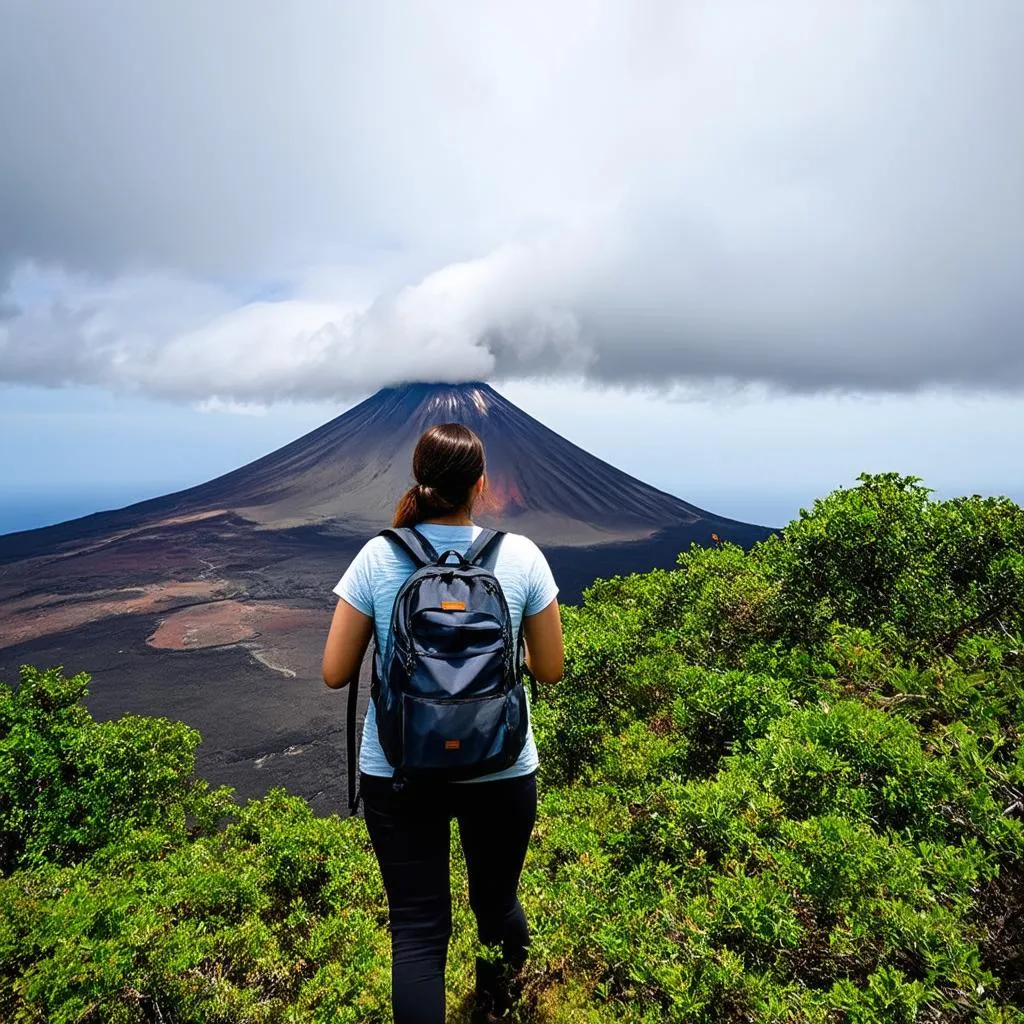“It’s more fun in the Philippines!” – this catchy slogan rings true for many travelers who have experienced the beauty and hospitality of this Southeast Asian archipelago. But with so much conflicting information online, you might be wondering: Is It Safe To Travel The Philippines? Let me share a story with you.
Last year, I met a fellow traveler, Maya, in a cozy hostel in El Nido, Palawan. She confessed she was initially apprehensive about visiting the Philippines due to safety concerns. But after exploring the breathtaking beaches, diving into turquoise waters, and experiencing the warmth of the locals, she realized her fears were unfounded.
Like Maya’s experience, your journey to the Philippines can be safe and unforgettable with a bit of planning and awareness. This guide will delve into safety aspects, tips for a secure trip, and answer frequently asked questions to set your mind at ease.
Understanding Safety in the Philippines
The Philippines, like any other country, has its share of challenges. However, it’s important to rely on credible information and avoid generalizations. Millions of tourists visit the Philippines annually, enchanted by its diverse islands, vibrant culture, and friendly locals.
Common Concerns and Realities:
Petty Theft: Pickpocketing can occur in crowded areas, especially in big cities like Manila. Just like you would in any other tourist destination, keep your valuables secure, avoid flashing cash, and be mindful of your surroundings.
Scams: Tourists might encounter scams, particularly with transportation. It’s best to use reputable taxi services, negotiate fares beforehand, and utilize ride-hailing apps whenever possible.
Natural Disasters: The Philippines is located in the Pacific Ring of Fire, making it prone to earthquakes and typhoons. However, the government has effective disaster preparedness measures in place. It’s wise to check weather advisories and plan accordingly.
Travel to Certain Areas: While most of the Philippines is safe for travel, some regions, particularly in the southern Philippines, might have security concerns. It’s always recommended to check travel advisories issued by your government and exercise caution when venturing into less-traveled areas.
Tips for a Safe and Enjoyable Trip
Before You Go:
- Research and Plan: Thoroughly research your destinations, including local customs, transportation options, and any safety precautions.
- Travel Insurance: Secure comprehensive travel insurance that covers medical emergencies, trip cancellations, and lost belongings.
- Register with Your Embassy: Inform your embassy or consulate about your travel plans, especially if you plan on staying for an extended period.
- Pack Smart: Carry a small first-aid kit, essential medications, and photocopies of your passport and other important documents.
During Your Trip:
- Respect Local Customs: The Philippines is a predominantly Catholic country. Dress modestly when visiting churches and religious sites, and be mindful of local customs and traditions.
- Money Matters: Exchange currency at authorized money changers and withdraw cash from ATMs located inside reputable establishments.
- Transportation Safety: Utilize official taxis, ride-hailing services, or pre-booked transportation, especially at night.
- Food and Water: Consume bottled water and be cautious of street food, especially if you have a sensitive stomach. Opt for restaurants with good hygiene practices.
- Stay Connected: Keep your phone charged, purchase a local SIM card for data and calls, and inform someone about your whereabouts.
FAQs About Safety in the Philippines:
Is it safe to travel to the Philippines alone?
The Philippines is generally safe for solo travelers, particularly for women. However, it’s essential to be vigilant, avoid walking alone at night in unfamiliar areas, and inform someone about your itinerary.
Is it safe to drink tap water in the Philippines?
It’s advisable to stick to bottled water for drinking and brushing your teeth.
What about transportation safety in the Philippines?
Use reputable taxi companies, ride-hailing apps, or pre-booked transportation. Always negotiate fares with taxi drivers before starting your journey.
Are credit cards widely accepted in the Philippines?
Major credit cards are accepted in larger establishments in cities and tourist areas. However, it’s wise to carry cash, especially when traveling to smaller towns or islands.
Embrace the Filipino Hospitality
The Philippines is renowned for its warm hospitality, and you’ll often encounter friendly locals eager to help. Don’t hesitate to ask for directions, recommendations, or even strike up a conversation.
For more travel tips and insights about the Philippines, be sure to check out our other articles:
A Touch of Feng Shui
In Feng Shui, traveling is believed to enhance personal growth and attract new opportunities. Bring along a small souvenir from your trip to symbolize new beginnings and positive energy.
By planning, being informed, and embracing the local culture, you can have a safe and unforgettable Philippine adventure. Remember, safety is a shared responsibility. By taking necessary precautions and being a responsible traveler, you contribute to a positive experience for yourself and those you encounter.
 Family enjoying a day at a Philippine beach
Family enjoying a day at a Philippine beach
 Female hiker enjoying the view from a Philippine volcano
Female hiker enjoying the view from a Philippine volcano